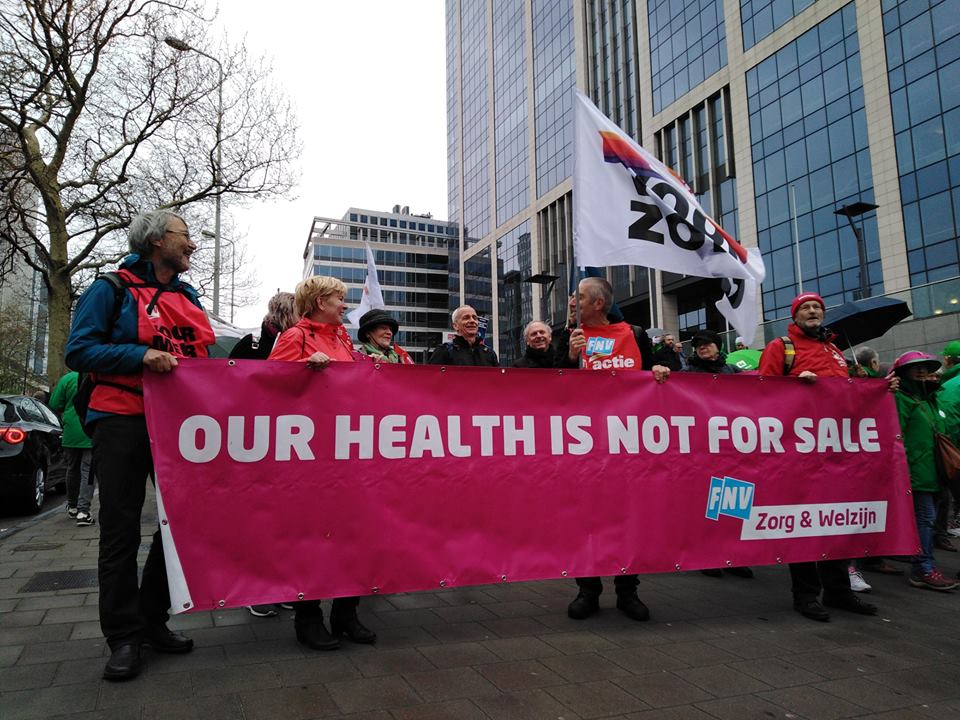Health activists and organizations observed a European Week of Action against the commercialization and privatization of health and social protection from April 1 to 7. The events were organized as part of the World Health Day on April 7 and the elections to the European Parliament, scheduled to take place from May 23 to 26. Various marches and meetings were organized in different European cities, including Madrid, Barcelona, Logrono, Pamplona-Irunea, Paris, London, Hamburg, Utrecht, Brussels, Thessaloniki, Rome, Naples, Karlovac, Novara, Turin, Verona, Bologna and Milan.
A mobilization to the European Parliament in Brussels was held on April 2. Hundreds of health activists marched with the slogan, ‘Our health is not for sale’. Following this, the activists organized a conference on the same topic in the parliament building, which was co-hosted by the Greens/European Free Alliance bloc in the European Parliament. The mobilization was called by the European Network against the Commercialization and Privatization of Health Care and Social Protection and the People’s Health Movement, among several other organizations.
The activists proposed a pledge to all the members of the European parliament to take into consideration. They claimed that the European institutions, through various policies and measures, are pushing national governments to reduce public spending, particularly on social protection, including pensions, unemployment and health, as well as on public/collective services, including education, childcare, care for disabled people and the elderly, transport, infrastructure, etc. They said that the institutions want to reduce these social contributions as they consider it a “competitive handicap”.
The brochure accompanying the Pledge of the campaign gives some examples of the health impacts of the economic policies of the European Union: “In Spain, geographical accessibility is threatened by budget cuts as non-urgent health transport risks becoming a paid service. In Ireland, 9 years of economic problems have increased unemployment from 4 to 15%. Medicine reimbursement has decreased by 100 million euros and waiting lists have increased from 6 to 12 months. In Greece, the impact of neoliberal policy has been dramatic for public health. 1.1 million people have lost their jobs and 3.3 million live in poverty and are socially excluded. In the Netherlands, public insurance has been replaced by private insurance companies because a profit motive for insurances was prioritized. As a result, 50,000 public health workers have lost their jobs.”





